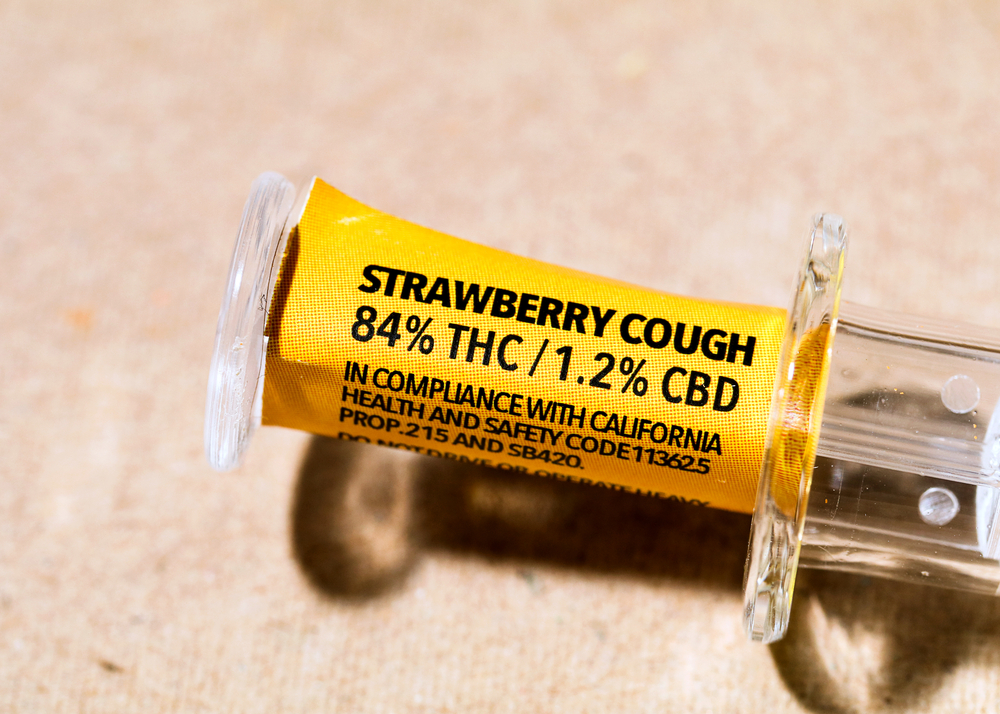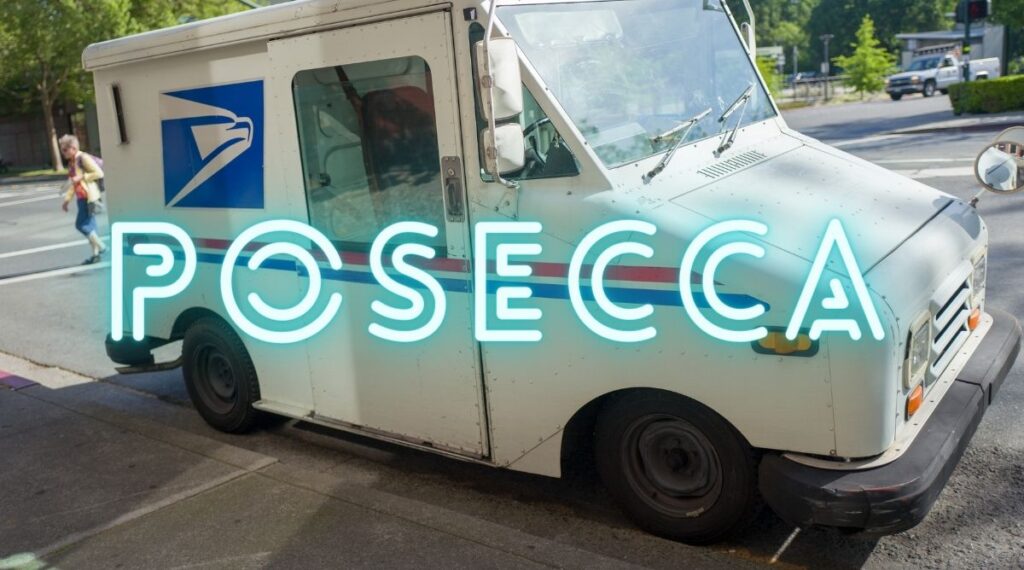Don’t blame your local mailman or woman. Blame POSECCA. The orders came from way higher up, at the federal level. The United States Postal Service announced this week that it will not allow anyone to mail vapes from now on. That includes everyone from consumers sending CBD to family or friends and businesses who take orders online.
The original ban handed down by the feds was supposed to take effect by April 5, 2021. Originally reported in Marijuana Business Magazine, Congress had approved a new law that banned distributing vapes by mail. It was the “Preventing Online Sales of E-Cigarettes to Children Act” (POSECCA). And simply stated, the plan was to prevent kids from ordering nicotine vapes online.
The Act did not mention anything about cannabis or cannabidiol vapes. Just nicotine and e-cigarettes, in an effort to prevent tobacco use by minors. A health move that everyone can get behind. Who wants the next generation of Americans to be hooked on tobacco, with a fallout of cancer risks and other side effects. Not anyone.
But banning all vapes from being mailed is a drastic step. And it conflicts with a variety of state laws in jurisdictions that have legalized cannabis, THCA, hemp flower, and oil, as well as other smokable products.
If the federal government does not have the right to veto cannabis legalization by states, does the U.S. Post have the right to ban vapes from the mail? Especially when the new e-cigarette act fails to list cannabis or CBD as one of the substances included in the new mail restrictions?
The Legislation Took Effect in April 2021
While manufacturers and distributors of vape products are protesting the new legal requirements, there was a delay in implementing the regulations. The POSECCA laws were actually passed and meant to take effect on April 5, 2021. But they were delayed.
When the U.S. Federal government sent a ‘reminder’ out, industries realized they planned for full implementation. That the new strict mailing laws about electronic delivery smokables were going through. And that the federal government meant to enforce it.
The “Treatment of E-Cigarettes in the Mail” was published in the Federal Register on October 21, 2022. It provides a comprehensive summary of what companies and individuals cannot do now that the new laws have been implemented.
Any kind of vape product is now listed under Publication 52, Hazardous, Restricted, and Perishable Mail. Even though the new laws are not in Title 39 of the Code of Federal Regulations (CFR). Publication 52 was amended in 2021.to include electronic smokables in conjunction with the new expansions to the Prevent All cigarette Trafficking (PACT) Act, which now includes all vapes (hemp and cannabis included).
The PACT Act became law in 2009. Also known as Senate Bill 1147. And it was only directed at nicotine products. Or flavored vapes that had 0% nicotine but could be harmful to minors. Little did legislators know that cannabis and hemp vapes would also be added to that list twelve years later.
Violation of PACT or POSECCA can result in both civil liability and criminal charges.

What Can’t You Ship by U.S. Post Anymore?
If the smokable is combustible, thanks to an electronically or battery-operated rig, you won’t be able to ship it at your local post office, effective immediately.
That includes the following products:
- e-cigarettes
- e-hookah
- e-cigar
- vape pens
- dry-bud and herb vaporizers
- tabletop vaporizers
- replacement parts for electronic vapes
- vape cartridges or containers
The new laws are so strict that manufacturers cannot even mail a component or part for an e-cig or vape rig through U.S. Post. This is going to make it very hard for companies that rely on the postal service for shipping e-commerce vape products or goods.
Who it won’t impact is Amazon. They have their own fleet. The e-commerce giant already sells electronic vape accessories, pipes, and even propylene glycol and vegetable glycerin kits, so you can make your own vape at home.
If both glycol and vegetable glycerin weren’t found to potentially increase lung inflammation. Especially for vapes that contain artificial flavors. Amazon won’t see a dent or even a bump in the road for their FBA (Fulfilled by Amazon) service for retailers. And that might also be a choice for smaller companies to distribute more heavily through Amazon’s private distribution services.
What Kind of Vape Can Still Be Sent by Mail According to POSECCA Regulations?
Electronic nicotine delivery systems (ENDS) have been banned from U.S. Post shipping since 2009. Now the term includes all vaping products and even accessories (vape pens) even if they do not contain nicotine. That means the 0% nicotine flavored vape products (unfortunately and illegally popular among American minors), e-cigs, and hemp cannabidiol or THC vape cartridges.
For your own legal safety, you shouldn’t be sending anything with 0.30% THC in the mail anyhow because the U.S. Post is a federal service, and cannabis remains a controlled substance. Sending THC through the mail is a felony offense with severe consequences. Never do that. Even if you are sending cannabis products from one legalized state to another.
Under certain conditions, vapes containing hemp or nicotine can still be mailed.
- Adults sending non-commercial shipments. I.e., sending your mom a couple of CBD vape cartridges. You will now be limited to sending 10 x packages per month or in every 30-day period. Anything more than ten shipments per month and you could be classified as a commercial business.
- Shipping labels are required that determine whether tobacco content is inside the package. This will also apply to hemp (cannabidiol) products. The POSECCA legislation also requires signature service. An adult must present photo identification to receive the package.
For your own legal safety, you shouldn’t be sending anything with 0.30% THC in the mail because the U.S. Post is a federal service, and cannabis remains a controlled substance. Sending THC through the mail is a felony offense with severe consequences.

Does the Vape Ban Also Apply to Courier Services?
No. Companies that sell CBD or THC vapes online and need to ship to customers have the option of using a courier service. That includes the United Parcel Service (UPS), Federal Express (FedEx), or any private delivery services.
What does this mean for online sellers, like dispensaries? Making the switch from shipping by U.S. Post to couriers won’t provide a lot of problems. But it will substantially increase the cost of delivery. And that means a few changes to the online ordering and home delivery process.
Anyone ordering from an online retail dispensary can expect to see special offers like “free shipping” go away unless the cart purchase is over a set amount, like $150 or more. And people who are ordering online will see an increase in the cost of shipping and handling as dispensaries make the change.
You will still be able to order cannabis products online. And get them delivered to your home. It is just going to cost you more money. And in some jurisdictions where the cost of medical or adult-use cannabis is already high, that’s going to present a problem.
That will be particularly true during the Covid-19 health emergency when home delivery is often the first choice, especially for people with health conditions who want to reduce their exposure in public places.
Featured Image: Canva






